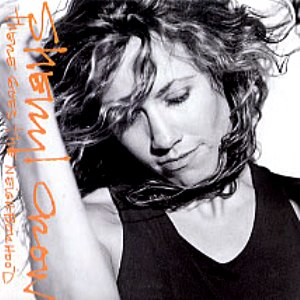
The Grammy Award for Best New Artist has been awarded since the 2nd Annual Grammy Awards in 1960, but was not presented in 1967. Years reflect the year in which the Grammy Awards were handed out, for records released in the previous year. The official guidelines are as follows: "For a new artist who releases, during the Eligibility Year, the first recording which establishes the public identity of that artist." Note that this is not necessarily the first album released by an artist; for example, Shelby Lynne won the award in 2001 after having already released six albums over 13 years.

The Grammy Award for Best Alternative Music Album is an award presented to recording artists for quality albums in the alternative genre at the Grammy Awards, a ceremony that was established in 1958 and originally called the Gramophone Awards. Honors in several categories are presented at the ceremony annually by the National Academy of Recording Arts and Sciences of the United States to "honor artistic achievement, technical proficiency and overall excellence in the recording industry, without regard to album sales or chart position". In 2023, it was joined by a companion category, Best Alternative Music Performance.

The Grammy Award for Best Rap Album is an award presented to recording artists for quality albums with rapping at the Grammy Awards, a ceremony that was established in 1958 and originally called the Gramophone Awards. Honors in several categories are presented at the ceremony annually by the National Academy of Recording Arts and Sciences of the United States to "honor artistic achievement, technical proficiency and overall excellence in the recording industry, without regard to album sales or chart position".
The Grammy Award for Best Male Rock Vocal Performance was a Grammy Award presented to male recording artists for works containing quality vocal performances in the rock music genre. Originally called the Grammy Award for Best Rock Vocal Performance, Male, the award was first presented to Bob Dylan in 1980. Beginning with the 1995 ceremony, the name of the award was changed to Best Male Rock Vocal Performance. However, in 1988, 1992, 1994, and since 2005, this category was combined with the Grammy Award for Best Female Rock Vocal Performance and presented in a genderless category known as Best Rock Vocal Performance, Solo. The solo category was later renamed to Best Solo Rock Vocal Performance beginning in 2005. This fusion has been criticized, especially when females are not nominated under the solo category. The Academy has cited a lack of eligible recordings in the female rock category as the reason for the mergers. While the award has not been presented since the category merge in 2005, an official confirmation of its retirement has not been announced.
The Grammy Award for Best Solo Rock Vocal Performance was an award presented at the Grammy Awards, a ceremony that was established in 1958 and originally called the Gramophone Awards, to recording artists for works containing quality vocal performances in the rock music genre. Honors in several categories are presented at the ceremony annually by the National Academy of Recording Arts and Sciences of the United States to "honor artistic achievement, technical proficiency and overall excellence in the recording industry, without regard to album sales or chart position".
The Grammy Award for Best Hard Rock Performance was an award presented to recording artists at the Grammy Awards from 1990 to 2011.
The Grammy Award for Best Country Collaboration with Vocals was an honor presented at the Grammy Awards, a ceremony that was established in 1958 and originally called the Gramophone Awards, to quality country music collaborations for artists who do not normally perform together. Honors in several categories are presented at the ceremony annually by the National Academy of Recording Arts and Sciences of the United States to "honor artistic achievement, technical proficiency and overall excellence in the recording industry, without regard to album sales or chart position".
The Grammy Award for Best Dance/Electronic Recording is an award presented at the Grammy Awards, a ceremony that was established in 1958 and originally called the Gramophone Awards, to recording artists for works containing quality vocal performances in the dance music and/or electronic music genres. Honors in several categories are presented at the ceremony annually by the National Academy of Recording Arts and Sciences of the United States to "honor artistic achievement, technical proficiency and overall excellence in the recording industry, without regard to album sales or chart position".

The Grammy Award for Best Metal Performance is an award presented at the Grammy Awards to recording artists for works containing quality performances in the heavy metal music genre. The Grammy Awards is an annual ceremony, where honors in several categories are presented by The Recording Academy of the United States to "honor artistic achievement, technical proficiency and overall excellence in the recording industry, without regard to album sales or chart position". The ceremony was established in 1958 and originally called the Gramophone Awards.
The Grammy Award for Best Jazz Vocal Performance, Female was an honor presented at the Grammy Awards, a ceremony that was established in 1958 and originally called the Gramophone Awards, to female recording artists for quality jazz vocal performances. Honors in several categories are presented at the ceremony annually by the National Academy of Recording Arts and Sciences of the United States to "honor artistic achievement, technical proficiency and overall excellence in the recording industry, without regard to album sales or chart position".
The Grammy Award for Best Female Rap Solo Performance was an honor presented to female recording artists at the 45th Grammy Awards in 2003 and the 46th Grammy Awards in 2004 for quality rap solo performances. The Grammy Awards, an annual ceremony that was established in 1958 and originally called the Gramophone Awards, are presented by the National Academy of Recording Arts and Sciences of the United States to "honor artistic achievement, technical proficiency and overall excellence in the recording industry, without regard to album sales or chart position".
The Grammy Award for Best Male Rap Solo Performance was an honor presented to male recording artists at the 45th Grammy Awards in 2003 and the 46th Grammy Awards in 2004 for quality rap solo performances. The Grammy Awards, an annual ceremony that was established in 1958, and originally called the Gramophone Awards, are presented by the National Academy of Recording Arts and Sciences of the United States to "honor artistic achievement, technical proficiency and overall excellence in the recording industry, without regard to album sales or chart position".

The Grammy Award for Best Melodic Rap Performance is an honor presented at the Grammy Awards, a ceremony that was established in 1958 and originally called the Gramophone Awards, to recording artists for quality songs on which rappers and singers collaborate. Honors in several categories are presented at the ceremony annually by the National Academy of Recording Arts and Sciences of the United States to "honor artistic achievement, technical proficiency and overall excellence in the recording industry, without regard to album sales or chart position".

The Grammy Award for Best Rock Album is an award presented at the Grammy Awards, a ceremony that was established in 1958 and originally called the Gramophone Awards, to recording artists for quality albums in the rock music genre. Honors in several categories are presented at the ceremony annually by The Recording Academy of the United States to "honor artistic achievement, technical proficiency and overall excellence in the recording industry, without regard to album sales or chart position".

"There Goes the Neighborhood" is a song by American singer-songwriter Sheryl Crow. The song was released as the second single from her third studio album, The Globe Sessions (1998), on November 23, 1998, and won an award for Best Female Rock Vocal Performance at the 43rd Annual Grammy Awards in 2001.
The Latin Grammy Award for Best Rock Solo Vocal Album was an honor presented annually at the Latin Grammy Awards, a ceremony conducted by the Latin Academy of Recording Arts & Sciences to "recognize excellence and create a wider awareness of the cultural diversity" and contributions of Latin recording artists in the United States and internationally. According to the category description guide for the 2009 Latin Grammy Awards, the award was given to vocal rock, hard rock or metal albums containing at least 51 percent of newly recorded material. It was given to a male or female artist.

The Grammy Award for Best Pop Solo Performance is an award presented at the Grammy Awards, a ceremony that was established in 1958 and originally called the Gramophone Awards. According to the 54th Grammy Awards description guides, the Best Pop Solo Performance Award as being designed for a solo performance pop recording and is limited to singles or tracks only.

The Grammy Award for Best Rock Performance is an award presented at the Grammy Awards, a ceremony that was established in 1958 and originally called the Gramophone Awards. According to the 54th Grammy Awards description guide it is designed for solo, duo/groups or collaborative rock recordings and is limited to singles or tracks only.

The Grammy Award for Best Country Solo Performance is an award presented at the Grammy Awards, a ceremony that was established in 1958 and originally called the Gramophone Awards. According to the 54th Grammy Awards description guide it is designed for solo country recordings and is limited to singles or tracks only.
















